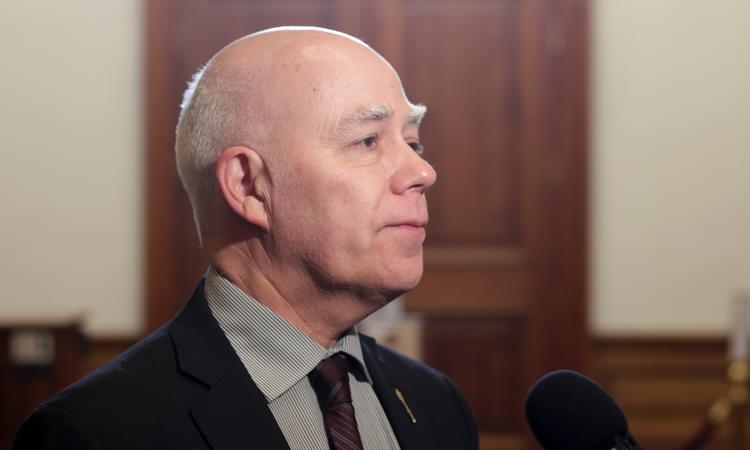Editorial: Skeptical of right-to-information office – Telegraph Journal – 21 March 2018
Article by: SHANE MAGEE
Photo by: SHANE MAGEE/TIMES & TRANSCRIPT
The Gallant government does not have a good track record with transparency. It has also bungled several important files, from public finance to health-care outsourcing.
This is why we’re skeptical of the Liberals’ latest venture: to streamline the task of responding to all right-to-information requests into the mandate of a single office. It would replace the current system, where each department replies to RTI requests individually.Certainly, there are some advantages – in theory. Government departments vary in their expertise of dealing with these requests. A centralized model could download this responsibility to a person or group who deals with these issues every day.
But while it’s true the new office responsible for RTI requests is likely to be more engaged and competent when it comes to the process, its officials might also be better at redacting material – a tool government uses to technically comply with laws, while holding back important information – and adding other hurdles to transparency.If that’s the case, the system might well become more “efficient” without ever helping government become more open to the public.
Green party leader David Coon told the Telegraph-Journal he worries this centralization will make the process of requesting information more susceptible to political interference. With a single RTI authority, the government of the day may attempt to influence that office in a way it can’t easily do with the various public sector offices and departments.
Frankly, we are curious about the motivation of announcing changes at this point. Amid tough questioning in the legislature on March 14 about the performance of Ambulance New Brunswick – details of which came to light because of investigative reporting – the optics suggest that government wants to change the rules of a game it is losing.
We need to get back to basics on transparency: On the whole, RTI legislation has provided insights into the details of how we are governed. The authority of the integrity commissioner to adjudicate appeals adds a level of accountability, so governments cannot simply ignore requests they don’t like.
Where significant improvement must come is in the culture of open government. The core issue here is the public’s right to know: When departments follow the letter of the law on RTIs, their compliance must also represent the spirit of the law – to provide information for all reasonable requests, in full and without secrecy. Unwillingness or hesitation to disclose shows contempt for the public and suggests a resistance to oversight.
If those responsible for our government believe in what they are doing, they should be confident in being open. This at the heart of the transparency issue in New Brunswick.
